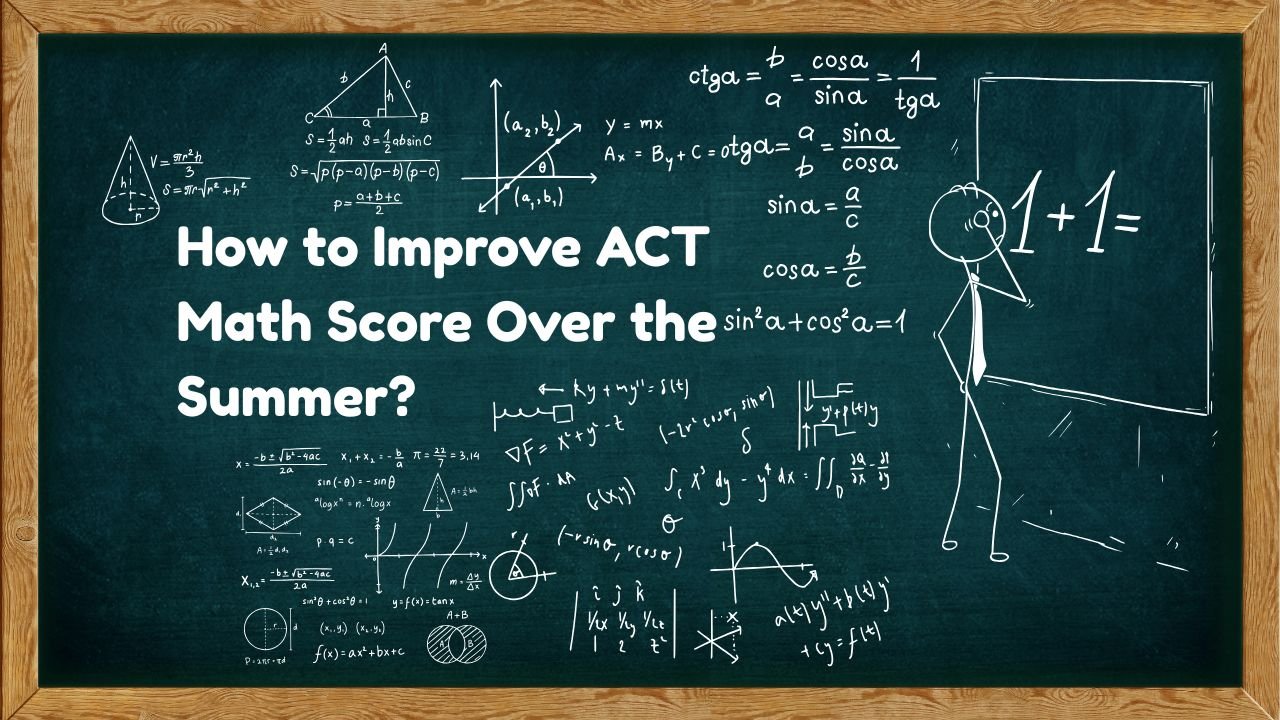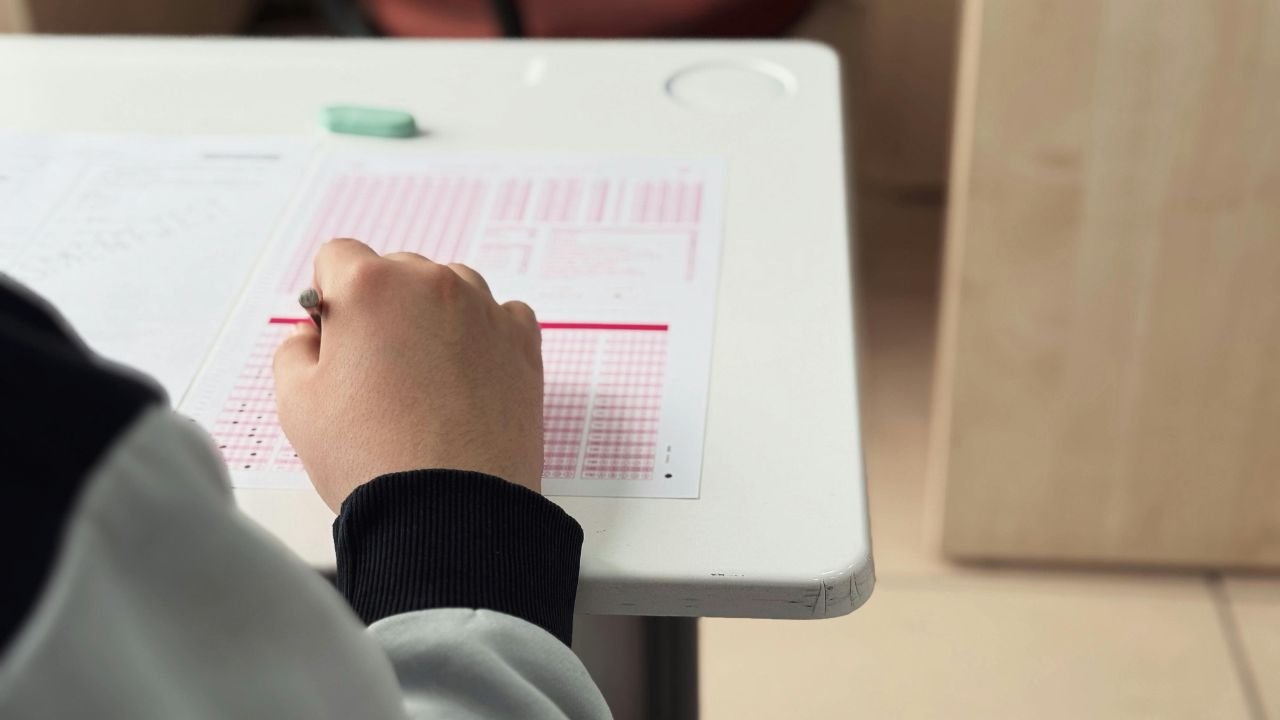To improve your ACT Math score over the summer, start with a diagnostic test, create a targeted study plan for weak areas, study with real ACT material, opt for practice tests often, review your mistakes, learn time management, and stay consistent in your practice. This will help you to use your summer in the most productive way to boost your ACT math score.
Summer is a great time for students preparing for college tests, especially the ACT. They don’t have the pressure of homework or exams, so they can easily focus on long-term goals, like focusing on weak areas for the ACT. The math section of the ACT is often considered technical and requires effort and time management.
It tests basic concepts of algebra, geometry, data analysis, and basic trigonometry. But the problem is not only time management but guess management as well. Often, students fail to work on the basic concept and don’t obtain the ACT Test Score they were targeting. Here is how you can improve your ACT math score in the summer.
7 Smart Math Practice Tips To Improve ACT Math Score
The math section of the ACT requires consistent effort and practice, including time management. But this doesn’t happen overnight. This ACT math prep plan helps you address those gaps effectively in the ACT Math Section.
Take a Diagnostic Test
This is the crucial step to start with. Take a diagnostic test for ACT math to understand where you excel and where you need to work. Start by taking an ACT Practice Test under timed conditions. Score it and review each question you missed. Write down the Act Math Questions Types (e.g., “functions,” “triangles,” or “inequalities”) where you made mistakes. Marking these will help you avoid them in the next test.
Understanding your weak areas will help you create a focused study plan that will target your weak areas in the ACT Sections.
Understand The ACT Math Format
Understanding the ACT math format is crucial for effective prep. You cannot prepare effectively without knowing this. The ACT math section format includes:
- 60 questions in 60 minutes
- Covers pre-algebra, algebra, geometry, and basic trigonometry
- No ACT Math Formulas sheet provided
- Calculator use is allowed, but efficient mental math saves time
- Questions are arranged by increasing difficulty (roughly)
Understanding the structure of the ACT Math section helps you manage time, anticipate question types, and avoid surprises on test day. You should review the official ACT format and scoring system. Search for converting ACT raw scores into ACT scaled scores. Familiarise yourself with the instructions so you won’t waste time reading them on test day.
Identify Your Weakest Math Topics
Not every parts of an ACT math problems are equally hard or easier. You may be doing good in some parts, but some parts may require more practice. Group your missed questions by topic: algebra, geometry, graphing, trigonometry. Create a short list of your three weakest areas. Start your prep by targeting one at a time.
Your focus should be problem area and not just scattered practice. This will make your study and practice even more effective. Don’t ignore concepts you partially understand. Clarify them fully before moving on.
Create a Realistic Weekly Study Schedule
Instead of studying for quantities, opt for quality. Do not study too much at once. Burnout is not good for your ACT math score prep. Your goal should be consistency over intensity for long-term retention. Study 3 times per week for 45–60 minutes per session. Follow a topic-based routine. Your sample study schedule should look like this:
Adjust your study schedule for ACT summer prep according to the result of the diagnostic test and align it with upcoming ACT Test Dates. This ensures you’re building your math skills in time for the exam.

Set Clear, Measurable Goals
Set a clear and measurable goal for each week. This will help you stay consistent and motivated, such as:
- Improve my ACT math score from 22 to 25
- Work and reduce my careless errors by half
- Complete 60 targeted practice questions.
Goals like these are smaller, measurable, and can help you stay focused without burnout. Keep tracking your performance in a spreadsheet or with a digital prep tracker. Make sure to go for specific goals each time and avoid vague goals like getting better in math.
Review Mistakes and Reattempt Missed Questions
During ACT math prep, you should review your mistakes after each test. Note down the mistake to retain it in your memory for the next attempt. Label the missed questions or mistakes, like rushed, misread, or forgot the rule. Work on the question again without looking at the answer. Review a similar question the next day.
This will help you to improve your ACT Math score as ACT recycles question types, and learning from mistakes will help you perform even more efficiently. Create an error log. The patterns will appear again in the next ACT math section, like consistent mistakes in geometry or negative signs.
Track Progress and Adjust Focus
Improvement has never been a straightforward matter. Track your progress in ACT math prep in summer to recognise your improvement, replan your strategy, and prevent scattered efforts.
Every two weeks, reassess your performance with an ACT practice test section. Update your weak areas and modify your study plan. If your trigonometry improves but geometry lags, shift your focus accordingly. End each week by noting, “What did I improve?” “What needs work?” “What will I do next week?”
Also, check ACT Test Dates 2025-2026 in advance so you’re not cramming last minute, and review How Long is the ACT Test? to improve pacing across all sections.
What Does the ACT Math Section Cover
The ACT Math section consists of 60 questions in 60 minutes, testing content through the end of algebra for ACT 2. Here’s how the test measures what ACT math covers:
What’s changed in recent years is the difficulty level of word problems and function-based questions. These trends align with college-readiness benchmarks, which are also covered in SAT vs ACT comparisons. Students now need to know how to interpret graphs, solve multi-step problems, and apply math in context, skills emphasised in many Ivy Test Prep.
FAQs About Summer ACT Math Scores
Here are the common questions about the ACT math score.
Does the ACT Math section allow calculators?
Yes. But not all problems require one. Learn when to use it efficiently and when mental math saves time.
What’s a good ACT Math score in 2025?
A 27–32 puts you above the national average. For competitive colleges, go for 30–34. The top 10% scorers typically earn 32 or above.
Can I raise my score by 4–6 points over one summer?
Yes. Opt for targeted practice and review. Most students who score between 18 and 28 can improve by 4–6 points in two months.
How much time should I spend on ACT math prep each week?
Around 3–5 hours per week. That’s enough to see real gains without overwhelming your summer plans.
Should I retake the ACT if I’ve already scored 28 in Math?
You can if your desired school lists 32+ as their 75th percentile score. It is even better if the rest of your application is strong.
Bottom Line
To improve ACT math scores over the summer, you don’t have to go above and beyond. Just make sure you understand your weak areas and work through a targeted schedule for effective ACT math prep. Keep tracking your progress so you can change your schedule and strategy accordingly.
The ACT Practice Test will help you understand better about your effort, just stay confident and honest about marking. Create a score log to record your mistakes and don’t repeat them next time. Summer can help you to work on your ACT Math Score effectively so you can stay confident for the actual test, knowing how well you performed.









